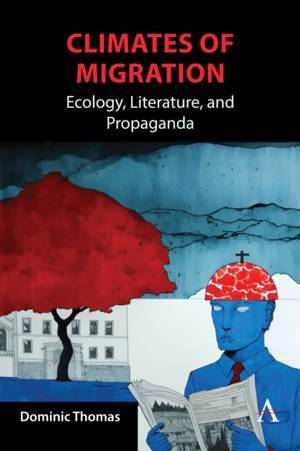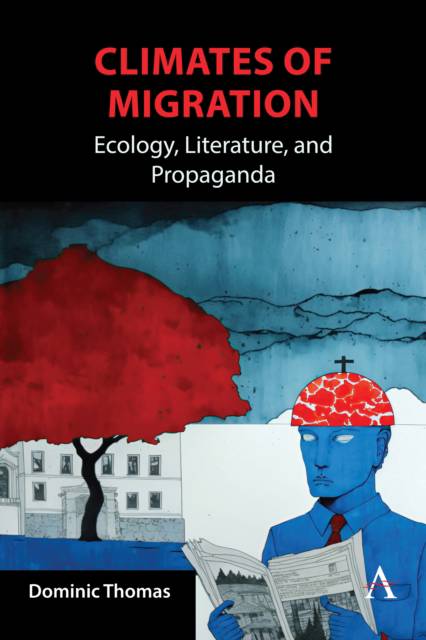
- Retrait gratuit dans votre magasin Club
- 7.000.000 titres dans notre catalogue
- Payer en toute sécurité
- Toujours un magasin près de chez vous
- Retrait gratuit dans votre magasin Club
- 7.000.0000 titres dans notre catalogue
- Payer en toute sécurité
- Toujours un magasin près de chez vous
Description
The prologue and chapter 1 situate the discussion in Climates of Migration in a broader context defined by a resurgence of attention on colonialism and postcolonial legacies, as evident in debates on restitution, reparation, historical accountability and responsibility. Colonial exploration and conquest are thereby connected with the environmental-migration nexus and accordingly chart the coordinates of the book as readers navigate the tentacular planetary reach of European colonial powers. This was of course an era when overseas travel was not even an option for the majority of people, yet one defined by sophisticated propagandist mechanisms that encouraged Europeans to travel through the imagination thanks to the immersive experiences offered at World's Fairs and Colonial Exhibitions as well as in various board games and other ephemera that promoted the benefits of having colonies, glorified conquest and expansion, while molding young minds and bolstering patriotic fervor. The lessons to be learned were manifold, concerning as they did a recognition of the importance to the economy of--and dependency on--colonies, while implanting a deep familiarity with goods and products. These games capitalized upon the experiential realities of colonial assignments, and the design replicated the defining elements of the colonial enterprise, while also of course mobilizing support. Yet, as we know today, agricultural and extraction practices contributed to anthropogenic global warming, as communities were removed or driven off their lands, displaced and compelled to migrate elsewhere. As such, questions of mobility were therefore central to the production and visualization of Empire, and today, heated debates pertaining to border control and sovereignty can be traced back to this era.
The catalyst for chapter 2 is to be found in French philosopher Bruno Latour's statement whereby "We can understand nothing about the politics of the last fifty years if we do not put the question of climate change and its denial front and center." The focus thus shifts to the multiple ways in which climate change has bent the arc of politics in new directions, most notably in the conjunction between the eco-colonial dimension and migration itself given that "What makes the migratory crisis so difficult to conceptualize is that it is the symptom, to more or less excruciating degrees, of an ordeal common to all: the ordeal of finding oneself deprived of land." Extensive recourse has been made to climate metaphors to amplify anti-immigration rhetoric, collectively delineating the parameters of an invasion narrative that alleges cultural, political and social saturation, submersion and replacement. Recourse to such terminology to describe migration exploits a simple tautology: climate change is a negative development, and therefore, conflating metaphors allows for a seamless twinning with the ills of immigration, grafting a pernicious meaning on the process (migration) and people concerned (migrants). In the associative context of climate change, this logic operates optimally since it coincides with a diagnosis of catastrophic global warming and the long-term projected impact, and has been present in European Union policy-making ("Green Deal" and "New Pact on Migration and Asylum of the EU") and broader discussions pertaining to climate migrants and climate refugees.
Spécifications
Parties prenantes
- Auteur(s) :
- Editeur:
Contenu
- Nombre de pages :
- 250
- Langue:
- Anglais
Caractéristiques
- EAN:
- 9781839996269
- Date de parution :
- 14-10-25
- Format:
- Livre relié
- Format numérique:
- Genaaid
- Dimensions :
- 152 mm x 229 mm
- Poids :
- 548 g

Les avis
Nous publions uniquement les avis qui respectent les conditions requises. Consultez nos conditions pour les avis.






